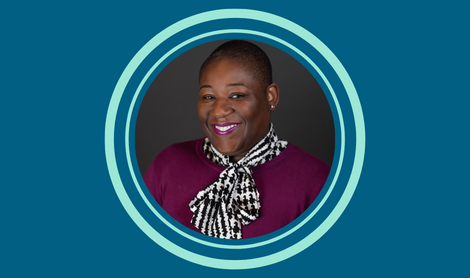By Vashaunta Harris, V. Harris Enterprises, and John Carwell Jr., Delaware State Department of Education
NACSACon’s keynote speaker, Dr. Anton Treuer, remarked that, “Public education is the big assimilation experiment.” This extends to the work environments where many BIPOC educators and education leaders are working to set up BIPOC students—especially underserved students—for success. Helping BIPOC students thrive is connected to ensuring that BIPOC education leaders thrive.
The seeds for the new EnTere Ed Collaborative, one way that we as BIPOC education leaders are responding to these environments, were planted last year at NACSACon 2021. We hosted two virtual affinity groups with authorizers of color. These sessions gave space for authorizers of color to celebrate one another, connect with one another, and gain inspiration together.
Little did we know the group’s appetite to continue meeting would extend beyond the national conference. With NACSA’s support, we convened several additional virtual meetings and hosted an in-person meetup in June 2022 during the National Charter Schools Conference in Washington, D.C. Here, in the first ever physical manifestation of our affinity group, we allowed the dream of creating a space for BIPOC authorizers to thrive.
And now we have an official name: EnTere Ed Collective. The name derives from a collection of English root terms representing a people who have overcome and are now entering a space of inclusivity and excellence.
- En: Proto-Indo-European root meaning “in.” → FROM INCLUDE
- Tere: “cross over, pass through, overcome” → FROM TRANSFORM
Celebrate, Connect, and Inspire were the key themes of NACSACon’s first EnTere Ed Collaborative Mixer, held at this year’s NACSACon 2022 in Minneapolis in October. More than 90 leaders of color in authorizing and authorizing adjacent roles from across the nation came together, in person. The energy in the room was palpable! As the event’s planners, working closely with Arielle Diaz of NACSA, we set a modest goal of attracting 50 authorizers of color to this event. We were thrilled when actual attendance nearly doubled that number, with authorizers and authorizing-adjacent professionals from 39 organizations across 40 states including the District of Columbia. Here are some demographics of the BIPOC population that attended the mixer.
When asked how we’d describe the EnTere Ed Collective mixer we were at a loss for words (and for those who know us both well, know that this is indeed a rare occurrence). Here we are a few weeks later, and the word we’ve leaned into is, simply, historic. Many of us are one of a few, or the only, person of color in our respective shops. We convened this mixer to celebrate each other, what is unique about our respective identities, and the uniqueness of the BIPOC collective. It was an experience of being seen, heard, and felt by our community and in turn seeing, hearing, and feeling them.
When we reflect back on the history of chartering and charter authorizing, we reflect upon the work of the Society of Sisters, who in 1925 were some of America’s first female voices with the Supreme Court decision of Pierce vs. The Society of Sisters, a case that set the stage for parents having the ultimate right to make the schooling decisions for their children. We reflect upon Milton Friedman, who in 1955 proposed that parents should be provided with the ample funding to send their children to the school of their choice. We think about the teachers that led the Mississippi Freedom Schools during the 1960s in the deep South ensuring Black students were educated holistically. We reflect upon the work of Dr. Kenneth Clark and his wife Maime whose work was integral to the Brown v. Board of Education Supreme Court case.
Now, when we think of NACSA and charter authorizing, we’re humbled to be a part of a team that, generations from now, will look back and reflect on the work we are currently doing to diversify this field. What a humbling moment.
The work we have ahead is tough, but it was clear we had all the tools we need right there in that gathering space at NACSACon 2022. It was clear that we needed this moment.
EnTere Ed Collective’s Spring 2023 Virtual Series: THRIVE
EnTere Ed Collective, a space where Black, Brown, and Indigenous authorizers and authorizing-adjacent professionals thrive, is introducing their spring 2023 virtual series: THRIVE. EnTere Ed Collective concentrates on providing professional development to its members that is designed to strengthen the capacity, ideas, and practices of authorizing so that the charter authorizing space becomes more equitable. This spring, the series will center around 3 key development priorities:
- Personal Identity and Leadership Authenticity; getting grounded in the true you and leading from that space naturally.
- Visioning; building your personal and professional vision
- Becoming a change agent
The virtual sessions will be held from 2-3pm EST on the 2nd Thursday of each month from March – July, 2023 and will culminate at an in-person experience during NACSACon 2023.
Dates:
-
March 9, 2023
-
April 13, 2023
-
May 11, 2023
-
June 8, 2023
-
July 13, 2023
REGISTER Today!


